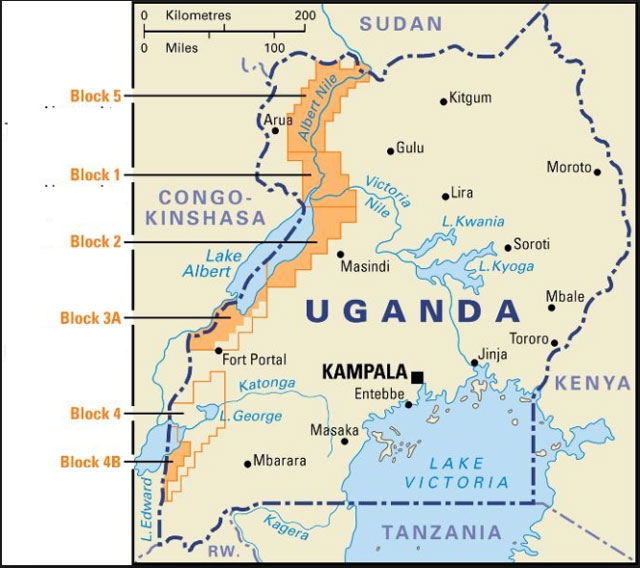
COMMENT | Joseph Mukasa Ngubwagye | Projects in the oil and gas sector require, among other things, land for temporary and permanent infrastructure and installations. This land acquisition is achieved through Resettlement Action Plans (RAPs) which seek to specify all resettlement arrangements and measures for avoiding, minimizing or compensating losses or other negative social and environmental impacts resulting from resettlement.
As is the case in other parts of the world, petroleum development involves involuntary resettlement. Such involuntary displacement, economic and physical, is deemed to present a significant challenge, and may result into long-term hardship for Project Affected Persons (PAPs) and environmental damage to the locations in which they are resettled.
All projects should therefore adhere to national and international best practices, which, among other things, require that involuntary resettlement be avoided or at least minimised, and that, where resettlement is unavoidable, all affected people should be fully and fairly compensated, and have an opportunity to be involved in the resettlement process. Each project should be considered as an opportunity to improve the wellbeing of affected people.
With support from the World-Wide Fund for Nature Uganda Country Office(WWF-UCO), the Civil Society Coalition on Oil and Gas (CSCO), a loose network of over 60 organisations working towards sustainable governance of Uganda’s oil and gas resources, conducted a monitoring exercise on the implementation of the RAPs for Tilenga – the upstream project for Total E&P Uganda in Buliisa district and the Kingfisher Development Area – the upstream project for CNOOC (U) LTD in Kikuube district.
Key among the findings was delayed approval of the compensation rates for the Tilenga affected persons
The main objective of this third party monitoring was to establish whether the resettlement process for the affected persons was done in a fair and equitable manner, as guided by the national and international legal and regulatory frameworks and standards, and industry best practices. The oil and gas Policy for Uganda of 2008 provides for third party monitoring of petroleum developments by the Civil Society.
Key among the findings was delayed approval of the compensation rates for the Tilenga affected persons by the Chief Government Valuer (CGV).
Section 59 of the Land Act mandates the district land boards to determine and annually update the compensation rates for crops and non-permanent structures at the district level.
Whereas Buliisa District Land Board updated the compensation rates for the year 2019/2020, these were rejected by the Chief Government Valuer (CGV) for the reason that they were at variance with what had been established by his office. Yet, no effort was ever made to harmonize the two rates.
As a result, the affected persons for the different enabling infrastructure do not have the approved rates for the year 2019/2020, even when surveys for they crops and temporary structures were completed and a cut-off date – date beyond which any developments on land cannot be compensated – declared.
On the 19th of March, 2020, CSCO held a follow-up meeting with the affected persons in Buliisa district. During this meeting, representatives of the District Executive Committee re-echoed the same concern, and expressed disappointment at how the CGV disregarded their rates which they claimed to have obtained through a rigorous market survey.
With the first quarter of the new financial year (2020/2021) ending, there are no approved compensation rates for the previous year for Tilenga affected persons by the office of the CGV.
While the law provides for adoption of the compensation rates of the neighbouring districts as an option, they equally do not have approved rates.
Uganda needs to make effort to avoid joining the growing list of resource curse countries.
Extractive industries tend to be associated with the resource curse and issues like corruption, political and social instability, and economic under-performance, rather than positive and inclusive development. Uganda needs to make effort to avoid joining the growing list of resource curse countries.
If land acquisition is badly managed, there will be many negative outcomes, including protests, project delays, escalating costs, reputational damage, food insecurity, and conflict.
The CGV must, therefore, consider approving the compensation rates for the affected persons in Buliisa district retrospectively. If this is not done, any compensation will be unfair and recipe for grievances
*****
 Joseph Mukasa Ngubwagye is a Senior Research Fellow, Advocates Coalition for Development an Environment (ACODE) – jngubwagye@acode-u.org
Joseph Mukasa Ngubwagye is a Senior Research Fellow, Advocates Coalition for Development an Environment (ACODE) – jngubwagye@acode-u.org
 The Independent Uganda: You get the Truth we Pay the Price
The Independent Uganda: You get the Truth we Pay the Price



